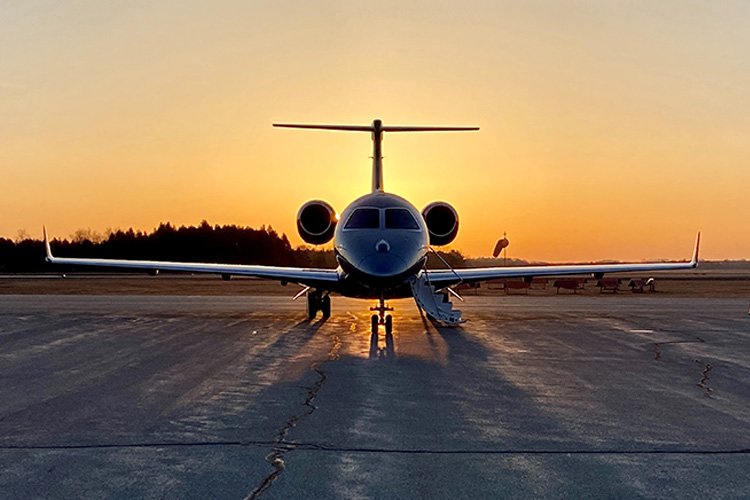

Elite Jets owns four Embraer Phenom 300 jets and one Embraer Legacy 500 jet that transport passengers to destinations across North, Central and South America, as well as the Caribbean. The company, which operates from a private terminal at Naples Airport, additionally has a Bell 407 helicopter that provides sightseeing and travel services across southern Florida.
The tragic accident that recently took the lives of two pilots performing an emergency landing on I-75 near Naples Airport has hit the close-knit aviation community hard. The high-profile incident also raised questions about the safety of private air travel among the flying public.
As the National Transportation Safety Board investigates the cause of this accident, it’s vital to emphasize that such accidents involving general aviation aircraft, which includes private- and corporate-owned aircraft, are not just uncommon, but exceedingly rare. According to the Aircraft Owners and Pilots Association (AOPA), the overall accident rate for 2021 (the most recent year for which data is available) was 4.28 per 100,000 hours, with fatalities occurring at a rate of just 0.77 per 100,000 hours. Both rates showed a steady decline over the preceding decade.
By definition, charter/on-demand aircraft such as those at Elite Jets and other charter providers are subject to more stringent Federal Aviation Administration oversight than privately-owned, non-commercial aircraft regulated under FAA’s Part 91 regulations. This oversight includes increased margins of safety such as duty/flight times, fuel and runway length requirements, and training.
Safety first
Across the board, that means more hours of flight training for pilots and an overall more rigorous set of safety standards. Elite Jets does not allow the use of contract pilots. However, contract pilots can and are used regularly in Part 91 operations. Since they do not work for a single employer, they can instead hang a shingle for their services from the highest (or cheapest) bidder, with far less employer oversight.
Elite Jets requires all newly hired pilots to spend their first two months on the job as trainees. This allows them to acquire or hone the necessary skills while learning about our corporate culture, values and operational procedures.
That includes a minimum of 90 hours of online education of processes, systems, safety indoctrination, ground school and flight training, supervised by our in-house training director and assistant director.
Next, they only fly with senior captains during their flight training. Once these new hires learn and demonstrate competency of not only the airplane, but also regulations, flight plans and more (which usually takes about 12 months), they then must be unanimously approved by the flight department’s leadership team and management before being upgraded to the position of captain.
Of our 20 pilots on the team, fully 100% have earned their Airline Transport Pilot (ATP) certificate, the industry’s highest such rank. Think of it as a “Ph.D. for pilots” — Elite Jets adheres to the highest available safety standards.
Additionally, all Elite Jets pilots attend a full-motion simulator training with both oral and written flight tests every 12 months, along with in-plane “checkrides” — aviation parlance for an FAA safety test — every six months.


Despite recent crash in Naples, private jets remain a safe alternative to commercial air travel. COURTESY PHOTO
In April 2023, Elite Jets earned the coveted “Wingman status” from global air safety auditor WYVERN. The Wingman standard is the first air charter audit standard in the aviation industry. To earn the designation, charter companies must undergo a comprehensive audit that includes a full review of the company’s operational history, safety records and more.
In addition, Elite Jets also is a platinum rated charter through ARGUS and maintains a Stage 2 Seal through International Standard for Business Aircraft Operations (ISBAO). Both designations rank Elite Jets among the top 5% of charter services in the country.
Frustrations mount with commercial air travel
Commercial air travel remains popular. In fact, Thanksgiving weekend 2023 marked the busiest air travel day in U.S. history. However, more passengers realize the flying experience often leaves a bit to be desired, from flight delays and shrinking leg room to luggage limits and bad behavior by fellow passengers… the list goes on and on.
After setting a record high in 2022, the federal Department of Transportation recently reported that consumer complaints nearly doubled during the first three months of 2023. And who can forget the Christmas air-travel debacle in 2022, when a service meltdown caused Southwest Airlines to cancel nearly 17,000 flights, stranding passengers for days across the country?
These woes are even the subject of a new book by Ganesh Sitaraman, a Vanderbilt University law professor, titled Why Flying is Miserable: And How to Fix It.
At Elite Jets, we’ve seen a surge of interest in private charter air service since the pandemic started in 2020. Business executives and leisure travelers alike quickly realized the convenience, privacy and passenger first approach of private jet charters supersedes the increasingly unpleasant commercial air travel experience.
Rather than rely on regional hubs and connecting flights, private jets can fly into nearly every airport in America, including regional airports with shorter runways. Instead of building travel schedules around the whims of the commercial airliner, passengers instead determine when they depart. And with concierge-level service, private travelers avoid lengthy lines at the check-in counter, security checkpoint and boarding gates.
As for the quirks of other passengers? On a private jet, there’s just the captain, first officer and your traveling party — up to nine people on the Phenom 300 and 10 on the Legacy 500. Elite Jets charges a flat rate, no matter how many seats are taken. Forget about the variable ticket pricing of commercial air travel or saving a seat for your traveling companion.
Here’s the bottom line: whether commercial or general aviation, air travel remains overwhelmingly safe. As we await further details on the NTSB investigation into the Feb. 9 crash in Naples, this tragic incident can and will serve as a lesson to continuously improve safety measures within the aviation industry. ¦
— Stephen Myers, CAM, of Naples, is an FAA-certified pilot and executive vice president at Elite Jets.






